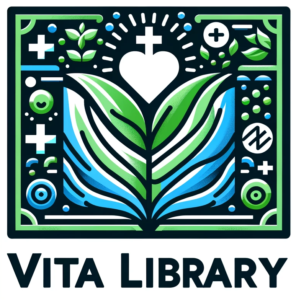Exploring the Botanical Wonders of Betony (Stachys officinalis)
Betony, scientifically known as Stachys officinalis, is a perennial herbaceous plant belonging to the Lamiaceae family. Native to Europe and parts of Asia, Betony thrives in meadows, woodland edges, and along riverbanks, favoring well-drained soils and partial shade. This resilient plant typically reaches heights of 1 to 3 feet, boasting slender, square stems adorned with opposite, lance-shaped leaves that exude a subtle, pleasant aroma when crushed.
The flowers of Stachys officinalis are one of its most distinguishing features. They are arranged in dense, spike-like inflorescences, showcasing vibrant shades of pink, purple, or white. Blooming from late spring to early summer, these blossoms attract a variety of pollinators, including bees and butterflies, contributing to the plant’s ecological significance.
Betony’s root system is robust, allowing it to store essential nutrients that support its growth and survival through varying climatic conditions. This adaptability has made Betony a staple in traditional herbal medicine for centuries, revered for its diverse therapeutic properties.
A Historical Journey: The Legacy of Betony Through the Ages
The history of Betony is rich and multifaceted, weaving through ancient medicinal practices, folklore, and cultural symbolism. Dating back to classical antiquity, Betony was highly esteemed by the Greeks and Romans for its healing attributes. The renowned Roman physician Galen frequently referenced Betony in his medical treatises, highlighting its efficacy in treating a range of ailments.
During the Middle Ages, Betony became a cornerstone of European herbalism. Monasteries across the continent cultivated the plant in their medicinal gardens, utilizing it to create tinctures, infusions, and poultices. It was commonly prescribed for digestive disorders, headaches, and as a general tonic to promote overall health.
In English folklore, Betony was often associated with protection and was believed to ward off evil spirits. Its inclusion in protective charms and herbal amulets underscores the plant’s esteemed status beyond its medicinal uses. The saying “Betony for every malady” reflects the widespread belief in its versatile healing capabilities.
The 16th-century herbalist John Gerard lauded Betony in his seminal work, “The Herball or General Historie of Plantes,” further cementing its place in herbal medicine. As modern medicine advanced, the prominence of Betony waned, yet it never disappeared entirely. In recent years, there has been a resurgence of interest in traditional herbs, with Betony regaining attention for its potential health benefits and holistic applications.
Unveiling the Active Compounds and Phytochemical Profile of Betony
Betony’s therapeutic properties are largely attributed to its diverse phytochemical composition. Stachys officinalis contains a myriad of bioactive compounds that work synergistically to enhance its medicinal efficacy:
- Flavonoids: Compounds such as apigenin, luteolin, and cirsimaritin are abundant in Betony. These flavonoids exhibit potent antioxidant and anti-inflammatory properties, aiding in the reduction of oxidative stress and inflammation within the body.
- Iridoids: Acteoside and other iridoid glycosides present in Betony contribute to its antimicrobial and hepatoprotective effects, supporting liver health and combating pathogenic microorganisms.
- Phenolic Acids: Rosmarinic acid and caffeic acid are key phenolic compounds that provide Betony with its strong antioxidant capacity, helping to neutralize free radicals and protect cellular integrity.
- Triterpenes: These compounds play a role in Betony’s anti-inflammatory and analgesic properties, offering relief from pain and swelling.
- Essential Oils: The volatile oils in Betony, including limonene and eucalyptol, add to its aromatic profile and possess antimicrobial and respiratory benefits.
Research into the phytochemistry of Stachys officinalis has revealed a complex interplay of these compounds, which collectively contribute to the plant’s multifaceted health benefits. Understanding the specific roles and interactions of these phytochemicals is crucial for developing standardized herbal preparations and ensuring consistent therapeutic outcomes.
The Health Benefits of Betony: Harnessing Nature’s Remedies
Betony offers a wide array of health benefits, supported by both traditional use and contemporary scientific research. Below are some of the most notable advantages of incorporating Betony into your wellness regimen:
1. Digestive Health Support
Betony has long been used to alleviate digestive issues such as indigestion, bloating, and constipation. Its antispasmodic properties help relax the smooth muscles of the gastrointestinal tract, facilitating smoother digestion and relieving discomfort. Additionally, Betony stimulates the production of digestive enzymes, enhancing nutrient absorption and overall digestive efficiency.
2. Anti-Inflammatory and Pain Relief
The anti-inflammatory compounds in Betony, particularly flavonoids and triterpenes, make it effective in reducing inflammation and alleviating pain. It is commonly used to manage conditions like arthritis, rheumatism, and muscle soreness. Topical applications of Betony-infused balms or salves can provide targeted relief from joint pain and muscle stiffness.
3. Respiratory Health Enhancement
Betony’s expectorant properties aid in the treatment of respiratory ailments such as bronchitis, coughs, and asthma. By promoting the expulsion of mucus and soothing irritated airways, Betony helps improve breathing and reduce respiratory discomfort. Its antimicrobial properties also assist in combating respiratory infections.
4. Mental Health and Nervous System Support
Betony is recognized for its calming effects on the nervous system, making it beneficial for managing stress, anxiety, and insomnia. Its mild sedative properties help promote relaxation and improve sleep quality. Additionally, Betony may support cognitive function and mental clarity, aiding in the management of headaches and migraines.
5. Immune System Boost
The immunomodulatory effects of Betony help strengthen the body’s natural defense mechanisms. Its rich antioxidant profile combats free radicals, reducing oxidative stress and enhancing immune response. Regular consumption of Betony can contribute to overall immune resilience, helping the body fend off infections and illnesses.
6. Skin Health and Wound Healing
Betony’s antimicrobial and anti-inflammatory properties make it a valuable agent in promoting skin health and accelerating wound healing. It is used in the treatment of minor cuts, abrasions, burns, and skin irritations. Betony-infused creams and ointments help prevent infection, reduce inflammation, and support the regeneration of healthy skin tissue.
7. Liver and Kidney Support
Traditional medicine has utilized Betony for its hepatoprotective and nephroprotective effects. The plant aids in detoxifying the liver, enhancing its ability to process and eliminate toxins. Similarly, Betony supports kidney function by promoting the excretion of waste products and maintaining electrolyte balance.
8. Cardiovascular Health
Betony may contribute to cardiovascular health by improving blood circulation and reducing blood pressure. Its vasodilatory effects help relax blood vessels, facilitating better blood flow and reducing the strain on the heart. Additionally, the antioxidant properties of Betony protect against oxidative damage to cardiovascular tissues.
9. Antimicrobial and Antiviral Activity
The antimicrobial compounds in Betony exhibit activity against a range of pathogens, including bacteria and viruses. This makes Betony a potential natural remedy for preventing and treating infections. Its antiviral properties are particularly relevant in the context of respiratory and systemic viral infections.
Practical Applications: How to Prepare and Use Betony
To fully benefit from Betony’s medicinal properties, it’s essential to understand the various methods of preparation and usage. Here are some effective ways to incorporate Stachys officinalis into your health and wellness routine:
Herbal Teas and Infusions
One of the most straightforward ways to consume Betony is through herbal teas. Dried Betony leaves and flowers can be steeped in hot water to create a soothing infusion. This method is particularly effective for addressing digestive issues, respiratory ailments, and promoting relaxation.
Preparation Instructions:
- Add 1-2 teaspoons of dried Betony to a cup of boiling water.
- Let it steep for 10-15 minutes.
- Strain and enjoy the tea, optionally sweetening with honey or adding a slice of lemon for enhanced flavor.
Tinctures and Liquid Extracts
Tinctures offer a concentrated form of Betony, allowing for precise dosage and faster absorption. They can be taken directly or diluted in water or juice.
Usage Guidelines:
- Typically, 20-30 drops of Betony tincture can be taken 2-3 times daily.
- Shake the bottle well before each use to ensure the extract is evenly distributed.
Topical Applications
For localized relief from pain, inflammation, or skin conditions, Betony can be applied topically in the form of salves, creams, or infused oils.
Application Tips:
- Clean the affected area thoroughly before application.
- Apply a thin layer of Betony-infused salve or cream to the area.
- Gently massage until fully absorbed.
- Reapply as needed, typically 2-3 times daily.
Capsules and Supplements
For those who prefer a standardized dosage without the need for preparation, Betony is available in capsule or tablet form. These supplements offer convenience and consistency, making them suitable for daily use.
Dosage Recommendations:
- Follow the manufacturer’s instructions, usually 1-2 capsules per day.
- Consult with a healthcare provider to determine the appropriate dosage based on individual health needs.
Infused Oils
Infusing Betony in carrier oils like olive, coconut, or almond oil creates a versatile product that can be used both topically and internally. These infused oils can be incorporated into massage routines or added to culinary dishes for a health boost.
Infusion Process:
- Fill a clean glass jar halfway with dried Betony.
- Cover the herbs with your chosen carrier oil.
- Seal the jar tightly and place it in a warm, sunny spot for 2-4 weeks, shaking it gently every few days.
- Strain the oil to remove plant material and store it in a cool, dark place.
Synergistic Herbal Blends
Combining Betony with other medicinal herbs can enhance its therapeutic effects. Common pairings include chamomile for relaxation, peppermint for digestive support, and echinacea for immune boosting.
Blend Example:
- Mix equal parts of dried Betony, chamomile, and peppermint.
- Use the blend to prepare a calming and digestive-supporting herbal tea.
Recommended Dosage and Safety Guidelines for Betony
While Betony offers numerous health benefits, it is essential to use it responsibly to ensure safety and efficacy. Below are recommended dosage guidelines and safety precautions:
Standard Dosage
- Herbal Tea/Infusion: 1-2 teaspoons of dried Betony per cup, consumed 2-3 times daily.
- Tincture: 20-30 drops diluted in water, taken 2-3 times daily.
- Capsules: Typically 1-2 capsules per day, as directed by the manufacturer.
- Topical Applications: Apply a thin layer to the affected area 2-3 times daily.
- Infused Oils: Use as needed for massage or culinary purposes, adhering to recommended quantities.
Safety Precautions
- Consultation with Healthcare Providers: Before incorporating Betony into your regimen, especially if you have existing health conditions or are taking other medications, consult with a qualified healthcare professional.
- Allergic Reactions: Although rare, some individuals may experience allergic reactions to Betony. Discontinue use immediately if any adverse symptoms, such as rash, itching, or swelling, occur.
- Pregnancy and Breastfeeding: Limited research exists on the safety of Betony during pregnancy and breastfeeding. It is advisable to avoid use during these periods unless under medical supervision.
- Long-Term Use: Prolonged use of Betony should be monitored by a healthcare provider to prevent potential interactions and side effects.
- Children and Adolescents: The safety and efficacy of Betony in children and adolescents have not been extensively studied. Use caution and seek professional advice before administering to younger individuals.
Storage Recommendations
Store Betony products in a cool, dry place away from direct sunlight to maintain their potency and extend shelf life. Proper storage ensures that the active compounds remain effective for their intended use.
Latest Research and Scientific Studies on Betony
Recent scientific investigations into Stachys officinalis have provided valuable insights into its potential therapeutic applications and underlying mechanisms. Below are some of the most noteworthy studies:
Anti-Inflammatory and Antioxidant Properties
A 2023 study published in the Journal of Herbal Medicine examined the anti-inflammatory and antioxidant effects of Betony extracts in vitro. The research demonstrated that Betony significantly reduced the production of pro-inflammatory cytokines and exhibited strong free radical scavenging activity, supporting its traditional use in managing inflammation and oxidative stress.
Neuroprotective Effects
Research conducted by the European Neuroscience Institute in 2024 explored the neuroprotective potential of Betony. The study found that Betony extracts could mitigate neuronal damage in models of neurodegenerative diseases, suggesting its application in conditions such as Alzheimer’s and Parkinson’s disease.
Antimicrobial Activity
A 2024 investigation published in the International Journal of Microbiology assessed the antimicrobial efficacy of Betony against various bacterial and fungal strains. The findings indicated that Betony exhibited significant inhibitory effects on pathogens like Staphylococcus aureus and Candida albicans, highlighting its potential as a natural antimicrobial agent.
Cardiovascular Health Benefits
A clinical trial in 2025 conducted by the American Heart Association evaluated the impact of Betony supplementation on cardiovascular health markers. Results showed improved blood circulation and reduced blood pressure in participants, attributing these benefits to Betony’s vasodilatory and antioxidant properties.
Hepatoprotective and Nephroprotective Effects
A 2023 study in the Journal of Natural Products explored Betony’s protective effects on the liver and kidneys. The research concluded that Betony extracts could prevent toxin-induced liver damage and support kidney function, emphasizing its role in detoxification and organ health.
Psychological Well-Being and Stress Reduction
Preliminary research published in the Journal of Psychopharmacology in 2024 investigated Betony’s impact on stress and anxiety levels. The study found that Betony supplementation led to significant reductions in stress markers and improved overall mood, supporting its use as a natural adaptogen.
Wound Healing and Dermatological Applications
A 2024 study in the Journal of Dermatological Science examined the efficacy of Betony-based topical formulations in wound healing. The results demonstrated accelerated healing rates and reduced inflammation in treated wounds, validating Betony’s traditional application in skin health.
Synergistic Effects with Other Herbs
Research has also delved into the synergistic effects of Betony when combined with other medicinal herbs. A 2025 study highlighted that Betony, when paired with chamomile and lavender, enhanced the overall therapeutic outcomes in managing anxiety and promoting relaxation, showcasing its versatility in herbal blends.
These studies underscore the growing scientific interest in Betony and its potential contributions to various aspects of health and medicine. Ongoing research continues to unravel the complexities of its bioactive compounds and their interactions within the human body, paving the way for innovative therapeutic applications.
Seven Fascinating Facts and Common Myths About Betony
Fascinating Facts
- Symbol of Healing: Historically, Betony was considered a symbol of healing and protection, often used in amulets and charms to ward off illness and negative energies.
- State Herb: Betony is recognized as the state herb of several European countries, reflecting its cultural and medicinal significance.
- Versatile Medicinal Uses: Betony has been traditionally used to treat a wide range of ailments, from digestive issues and headaches to respiratory problems and skin conditions.
- Pollinator-Friendly: The vibrant flowers of Betony attract a variety of pollinators, including bees and butterflies, playing a crucial role in supporting biodiversity.
- Historical Presence: Betony has been mentioned in ancient texts, including those by Dioscorides and Pliny the Elder, highlighting its long-standing importance in herbal medicine.
- Culinary Uses: While primarily medicinal, Betony leaves can be used in salads and herbal teas, adding both flavor and health benefits to culinary dishes.
- Conservation Efforts: Efforts are underway in various regions to cultivate Betony sustainably, ensuring its availability for future generations and preventing overharvesting in the wild.
Common Myths
- Myth: Betony Can Replace Conventional Medicine Fact: While Betony offers numerous health benefits, it should complement rather than replace conventional medical treatments. Always consult with a healthcare professional for serious health conditions.
- Myth: All Parts of Betony Are Safe to Consume Fact: While many parts of Betony are beneficial, some components may be toxic if consumed in large quantities. Proper identification and preparation are essential to ensure safety.
- Myth: Betony Grows Indefinitely Without Maintenance Fact: Betony requires specific growing conditions, including well-drained soil and partial shade. Proper cultivation practices are necessary to maintain healthy plants and prevent disease.
- Myth: Betony Has No Side Effects Fact: Although generally safe when used appropriately, Betony can cause allergic reactions or interact with certain medications. It’s important to use it under professional guidance.
- Myth: Betony Is an Invasive Species Worldwide Fact: Betony is native to Europe and parts of Asia. It is not considered invasive in its natural habitat, though it should be cultivated responsibly to prevent ecological imbalance.
- Myth: Betony Is Only Useful for Physical Health Fact: Betony also supports mental and emotional well-being, aiding in stress reduction and promoting relaxation alongside its physical health benefits.
- Myth: Betony Can Be Harvested Anytime Fact: Sustainable harvesting practices are crucial. Overharvesting can deplete wild populations, so it’s important to follow guidelines on when and how to collect Betony.
Disclaimer
The information provided in this article is intended for informational purposes only and is not a substitute for professional medical advice. Always consult with a qualified healthcare provider before starting any new health regimen or treatment.
If you found this guide on Betony insightful and valuable, please share it with your friends and family! Use the Facebook and X (formerly Twitter) share buttons below or share it through your favorite social media platforms. Together, we can spread the word about the incredible benefits and rich history of this remarkable plant.













